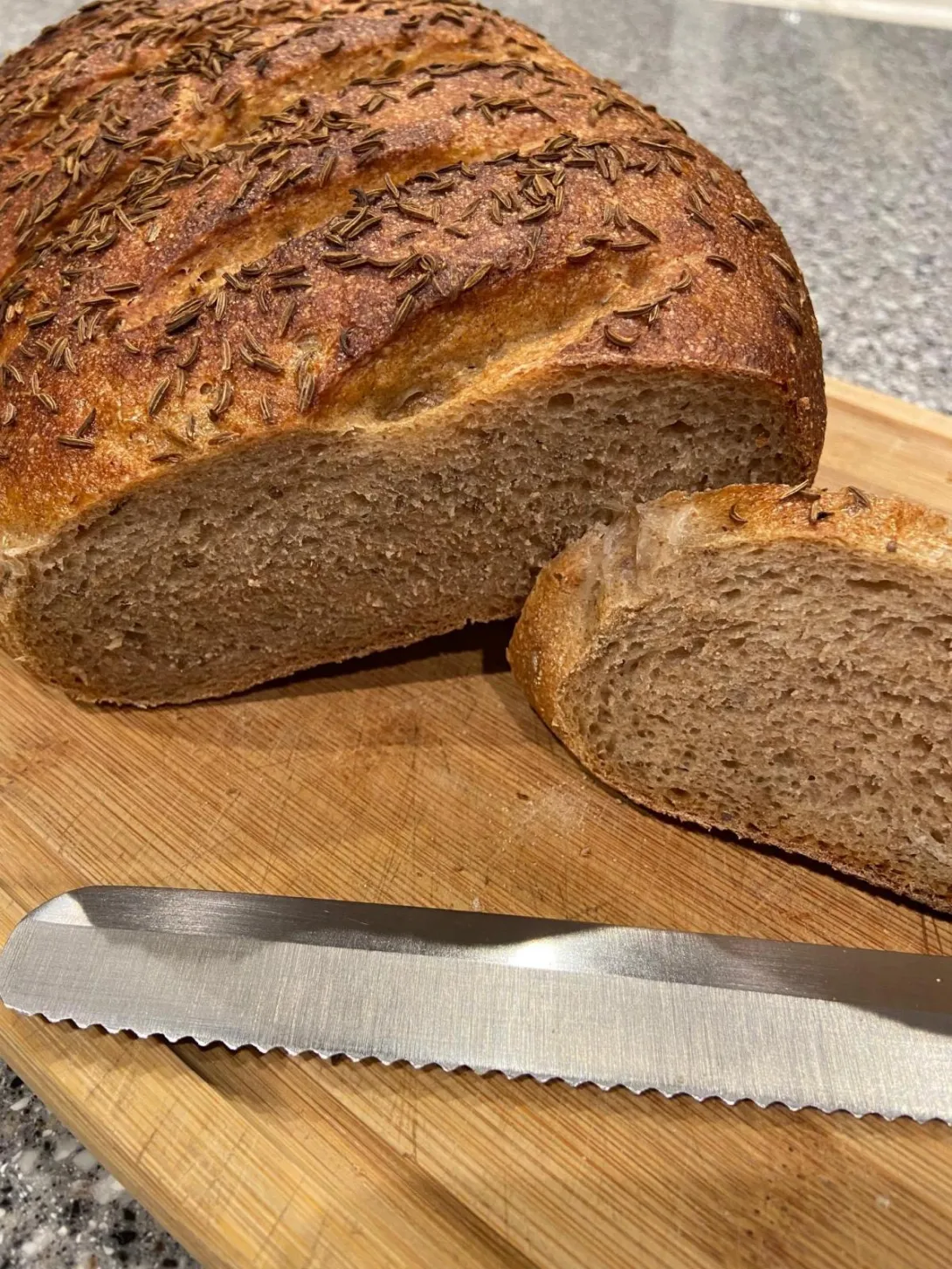
Hi Everyone,
I've been reading this site for the past few years but have never posted anything before now. I've had great success with both Hamelman's and Ken Forish's recipes and even managed to collect a State Fair Blue Ribbon for panettone. The recipe coming from a Wild Yeast (http://www.wildyeastblog.com/panettone post), so I'm not exactly a total novice. But today I tried my hand at making Jeffery Hamelman's 40% Caraway Rye for the first time. And while it smells and tastes great the appearance is in my opinion lacking.
The only variation from Hamelman's formula was I used my unfeed stiff levain (20% whole wheat, 80% APF, 80% water) rather than a rye culture. Since it was unfeed I increased the amount used. After 18 hours the sourdough mix hand more than doubled. All other things were unchanged.
It's too flat! Any suggestions on how to prevent it from spreading out and raising up instead?
Thanks,
Pete
I'm hardly an expert on rye or any other sourdough, but that loaf looks really good to me. I would be extremely satisfied with that outcome.
I agree with alcophile. That looks wonderful.
I'm sure the loaf will have a great taste. I make Hamelman's 40% caraway rye bread fairly often and get a good rise. I highly recommend you persist and make it again using a mature stiff rye sourdough culture (83% hydration).I think you will see a world of difference in the baked loaf; taste, texture and volume. The 68% hydration of the dough should not make the dough spread out. Double check your measurements and flour type.
I like the way you scored the loaf laterally. I score all my seeded loaves laterally with a serrated steak knife. It tends to keep the hooped shape of the loaf when baked.
banneton during the final proof if not using one. I wouldn't let the bulk "double." The crumb looks spot on.
That's a nice looking bread! I'm sure you'll enjoy it.
I make this bread all the time. Rye tends to spread because it doesn't have a gluten matrix to support it like wheat doughs do. That said, this dough is 60% AP flour, so it shouldn't be a huge issue, but it's also acidified at 40%, which has a big impact on the dough. If you prefer more height, do as Mini suggests and support the sides with a banneton. You could also shape it as a batard (which is what I do) and if the dough seems particularly slack, you can place some wine bottles or something along the sides to help support it. As Gavin pointed out, transverse slashes will help it spring up (instead of out) in the oven.
All of this being said, 18 hours is a long fermentation period for this levain unless the ambient temperature was quite cool. Your starter might not develop the dough exactly as expected because it's a departure from the formula. Doubling isn't necessary and is not a reliable way to gauge fermentation with rye. I do my best to manage the temps called for in the instructions and, when I'm successful, I find that the time cues given work out very well (12-14 hours to ripen the levain at 70°F, approximately 1 hour for bulk and final fermentations, in the upper 70s°F). After 18 hours, the levain might be "overdone," which at 40%, could have adverse effects on the dough. If you don't spike the dough with instant yeast, the approximate one hour bulk and final fermentation periods might take a bit longer, but not dramatically so.
Hope this helps. Enjoy the bread, the bread, it looks delish!
[EDITED to correct content because I misread the OP]
Thanks to all for your feedback, especially to Mini Oven as that sounds like great advice. I'll try again and let you all know how it comes out.